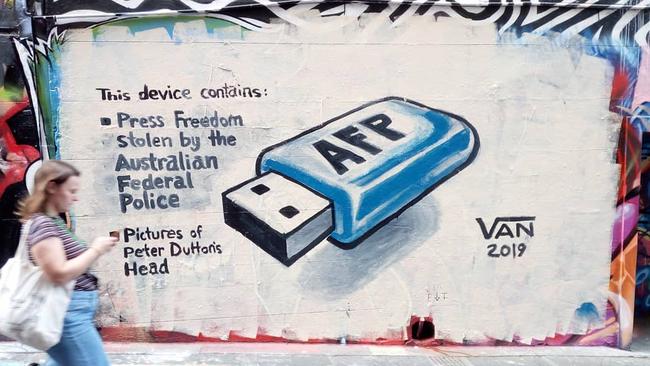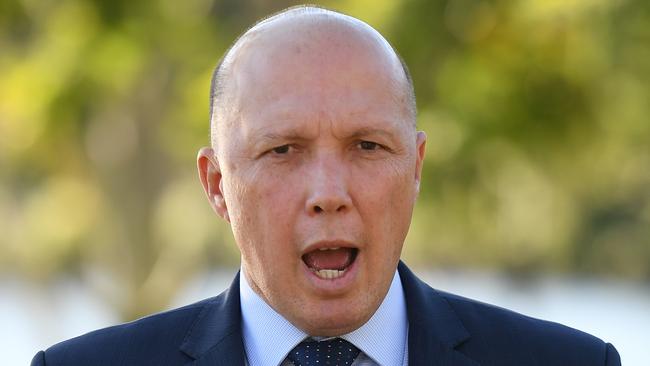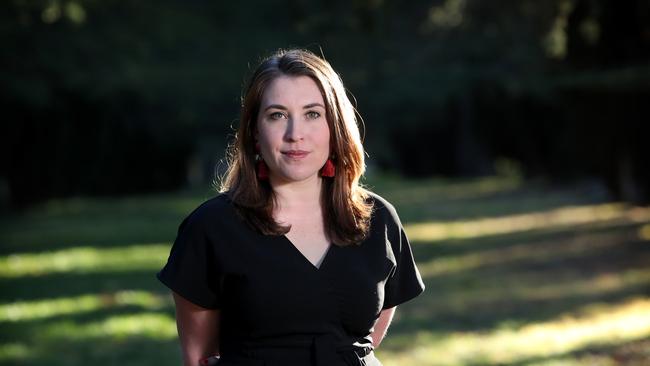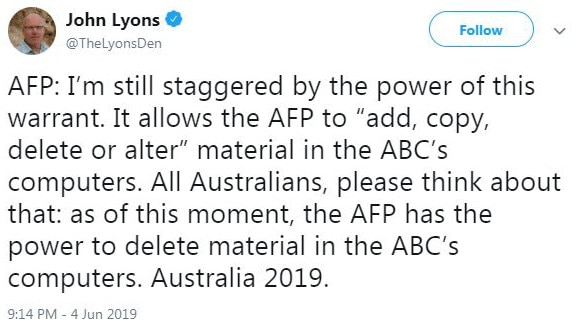The chilling message AFP raids sends about our leaders
Every Australian should be worried about the Australian Federal Police raids on the media this week, writes Dennis Atkins. Of particular concern should be the nonchalant attitude from ministers like Peter Dutton.
Rendezview
Don't miss out on the headlines from Rendezview. Followed categories will be added to My News.
In 1983 police investigations into leaks to the media were old school.
Soon after the election of the Hawke Government, the now defunct National Times published a front-page story on Australia’s strategic basis for its forward defence planning — which was spread over much of the inside of the edition.
The article, written by the paper’s editor Brian Toohey, was based on a Top Secret Cabinet document known in the trade as the “StratBasis”.
It was a shock and awe expose of the most closely held secrets leaked in the first months of a new Labor Government.
RELATED FROM RENDEZVIEW: Raids on media have no place in our democracy
The Australian Federal Police — itself just four years old after its 1979 formation — was called in as was the Australian Security Investigation Organisation.

A thorough inquiry was held. They got nowhere with Toohey who was famous for getting the best secrets going and for his emergency barbecues in which the top secret documents he was privy to were used as backyard fuel.
Inside the government every office which had access to the StratBasis document was inquired into.
RELATED FROM RENDEZVIEW: Annika Smethurst raid was more than an invasion of privacy
Despite finding some quite incriminating evidence (it was suggested one Cabinet submission in one ministerial office had identifiable hand prints on the back of the pages, pointing to possibly photocopying), no one was charged with a crime.
The office suspected having a leak in its ranks was put on a low security feed and its behaviour and activity was subject to intense scrutiny.

This week, we had some national security leak inquiries, new school style.
The AFP, now puffed up with once unimagined powers and contemptuous of media scrutiny, bounced into the home of Annika Smethurst at about 7am.
Annika, a winner of many awards, including the prized gong for The Courier-Mail, Wallace Brown federal press gallery young journalist and two Walkley Awards, including one for Scoop of the Year, thought it was her cleaner.
She was then humiliated as police poked around in her underwear drawer.
The story behind this raid was a plan — not acted upon — to use the Defence Signals spying organisation to snoop on Australian citizens.
These raids were undertaken under sections of the Crimes Act which includes penalties such as serious jail time.
The AFP and their gung-ho minister Peter Dutton appear to not hide their enthusiasm to lock people up who commit offences.

It wasn’t just News Corp Sunday journalist Smethurst who was pushed around by the AFP.
A posse of AFP officers arrived at the ABC’s headquarters in Sydney’s Ultimo with lots of electronic forensic gear to spend hours going through the computers of journalists looking for material relating to another story the government didn’t like.
MORE FROM DENNIS ATKINS: Warring tribes of Canberra have a headache on their hands
The AFP went about their work while senior ABC editorial executive John Lyons live-tweeted events.
The police were so proud of what they were doing, they complained to Lyons about his live-tweeting. He carried on.
There was another report about 2GB announcer Ben Fordham getting a call on the quiet from Dutton’s Home Affairs department about a report he aired relating to asylum seeker boats.
Nothing came of that so far and beyond Fordham’s voluntary revelation we know nothing more about it.
MORE FROM DENNIS ATKINS: Insanity prevails in the post-election comedown
All of this sends some chills down the collective spine of journalists covering national politics and security and defence matters.

It also acts as a very real and very unwelcome heavy-handed warning to any potential whistler blowers who might want to expose dodgy doings and dirty deals otherwise being kept secret.
It’s not being dramatic to say every Australian should be worried about these events and the blasé attitude from ministers like Dutton.
Despite hollow words to the contrary, Dutton doesn’t like scrutiny and he relishes having and exercising heavy-handed powers.
Likewise, the AFP would prefer no scrutiny and regards freedom of the press as something to be tolerated. They say otherwise but their actions speak louder than words.
Australia has had a slew of security laws introduced since the al-Qaeda terror attacks on New York and Washington, many of them stripping citizens of rights.
It might be a good time to have a root and branch stock take of these laws, focused on whether they have performed the job they were intended to do and whether they are still necessary.
While that might be a good idea, don’t hold your breath. To do that might involve politicians and the security industrial complex behind them giving up some power.
That’s not going to happen anytime soon.
Dennis Atkins is The Courier-Mail’s national affairs editor.
Originally published as The chilling message AFP raids sends about our leaders


